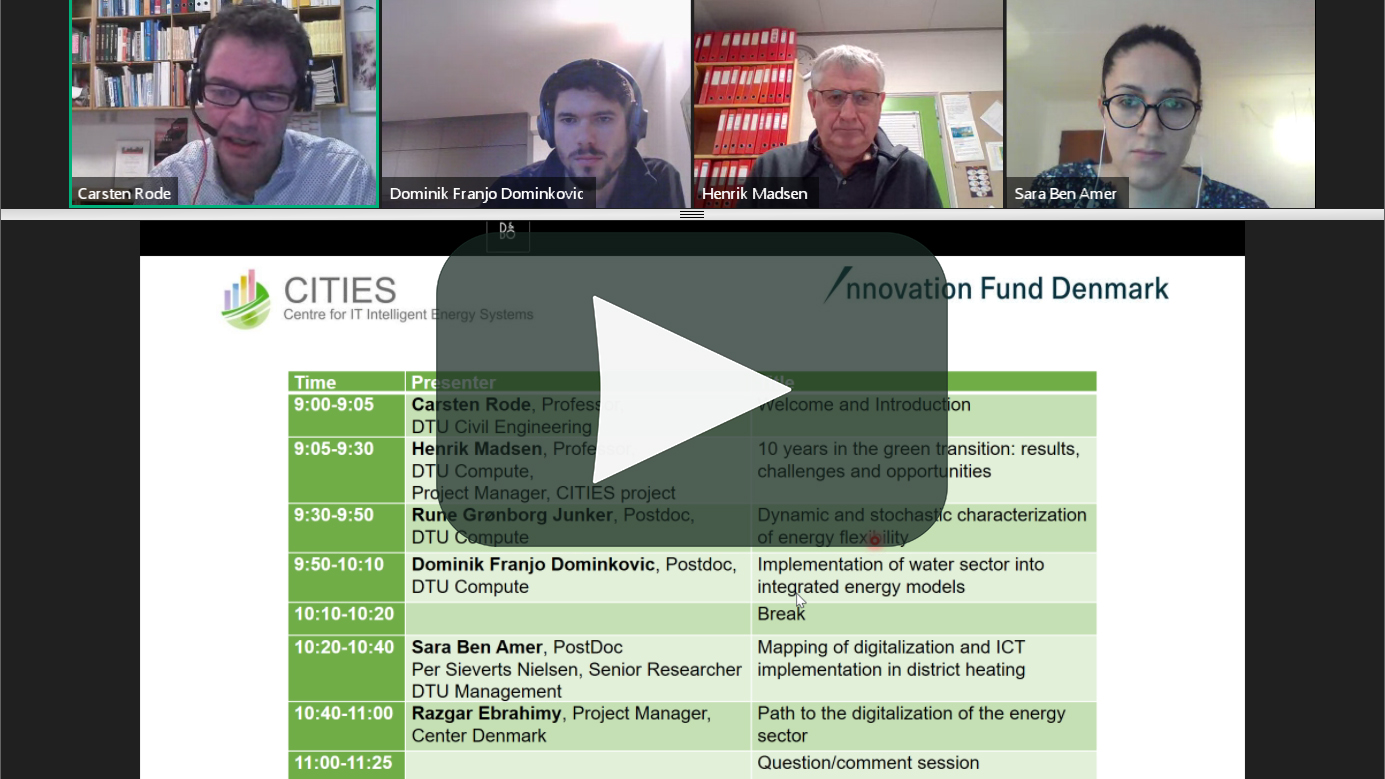Video – watch or rewatch

A low-carbon society calls for fundamental changes in the energy system. Today energy systems are operated and planned so that the production follows the demand. However, an efficient implementation of a low-carbon society calls fora system where demand follows production. This highlights the need for a whole spectrum of methods ranging from energy system planning to operation. Most importantly, the flexibility at virtually all type of end-users on all aggregation levels has to be unlocked. In order to maximize the flexibility options, all aspects of energy systems integration and sector coupling, such as the energy-water nexus, have to be considered.
The complexity calls for the next level of digitization and a need for new tailored methods, i.e. energy system-oriented AI, Big Data Analytics, Grey-Box Modelling, Cloud-Fog-Edge Computing, System-of-Systems, IoT, Resilience, User-involvement, and Data-sharing principles. This special session will provide a number of talks highlighting the status and challenges in achieving an efficient implementation of the future low-carbon society.
Programme:
- Carsten Rode, Professor at DTU Civil Engineering, Moderator
- Henrik Madsen, Professor at DTU Compute and Project Manager for the CITIES project: 10 years in the green transition: results, challenges and opportunities
- Rune Grønborg Junker, Postdoc at DTU Compute: Dynamic and stochastic characterization of energy flexibility
- Dominik Franjo Dominkovic, Postdoc at DTU Compute: Implementation of water sector into integrated energy models
- Postdoc Sara Ben Amer and Senior Researcher Per Sieverts Nielsen, both DTU Management: Mapping of digitalization and ICT implementation in district heating
- Razgar Ebrahimy, Project Manager at Center Denmark: Path to the digitalization of the energy sector
- Technical Moderator: Energy Cluster Denmark
